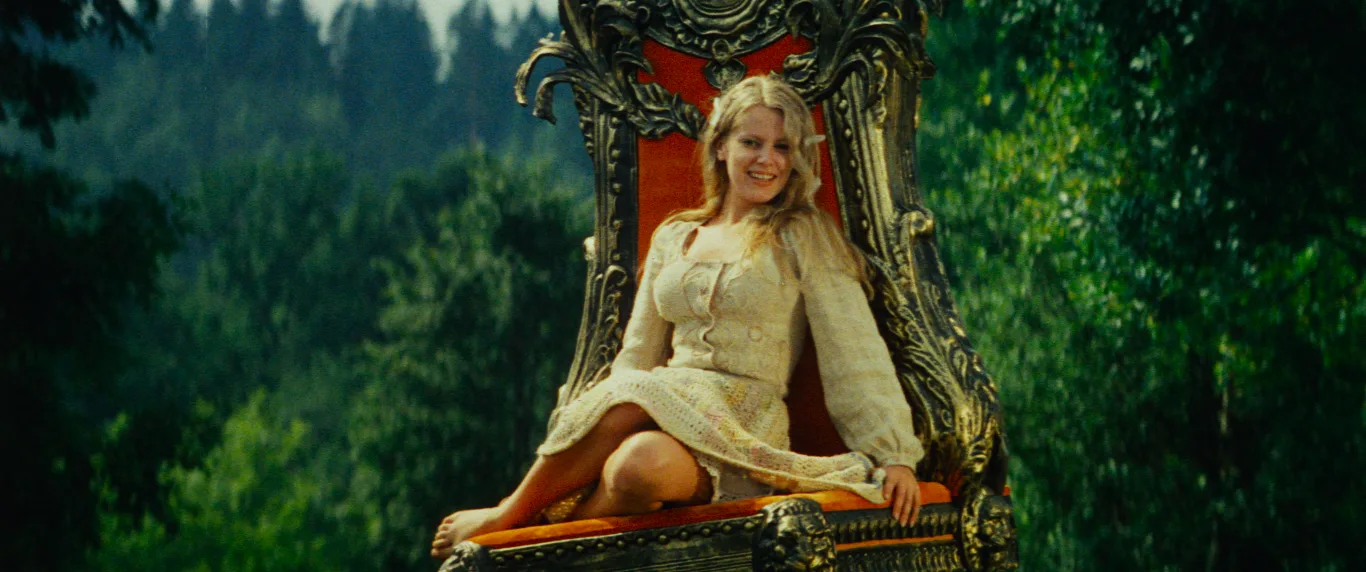Folklore and fantasy are nothing new to the Fantasia International Film Festival, but this year’s lineup features quite a few pictures that capture cinema’s ability to grasp the surreal. We’ve got Lithuanian rock operas, Mexico’s first stop-motion feature film, and a child’s fantasy from Bolivia, all of which play with humanity’s capacity for imagination as a means to understand the messy world around us.
First is possibly one of the most high-profile titles at the fest, and certainly one of the most meticulously-built labors of love: “I Am Frankelda,” from the Ambriz Brothers, founders of Mexican stop-motion studio Cinema Fantasma. The film is Mexico’s first stop-motion animated feature, heavily cosigned and produced by fantasy luminary Guillermo del Toro, which naturally sets expectations high. From tip to tail, “Frankelda” feels worth the years of meticulous work the studio put into it, building a lush, intricate fable that fits snugly alongside the master’s other works.
Affecting a vibe similar to Henry Selick’s “The Nightmare Before Christmas” (also playing in retrospective at this year’s fest), “Frankelda” extends the Ambriz Brothers’ HBO Max series “Frankelda’s Book of Spooks” into a lush musical tale of the Land of Spooks, a fantastical world filled with baroque creatures whose designs evoke the sharp lines and rich colors of Mexican folk art. They are the literal brainchildren of Francisca Imelda (Mireya Mendoza), a young woman whose imaginative stories are dismissed by publishers; no one wants the flights of fancy of a female author.
But little does she know that her creations are real, and their world depends on a fragile economy of nightmares spun by unscrupulous arachnid and Royal Nightmarer Procustes (Luis Leonardo Suarez) to keep the flow of ideas between the realms of reality and fiction alive. But when Procustes’s inspiration starts to wane, the Land of Spooks starts to wane; in desperation, Herneval pierces the veil between worlds to bring Francisca (taking the nom de plume Frankelda) to his world to enliven it with her creativity.
It’s difficult to overstate just how incredible “Frankelda” looks, with its vivid character designs and beautifully expansive constructed sets. Living dragon ships sail through oceans of cloud, with grasping hands waving in the breeze; the Land of Spooks is populated with all manner of staggering creatures from a Medusa-like clan chief to a skeletal mammoth-like guardian. It’s all so very ambitious, and the film takes great care to avoid crumbling under the weight of all its mythology by grounding it in very elemental ideas of imagination and the agency we all desire over our own creativity. (The songs help with that; they’re few and far between but rewarding when they appear—the rousing “King of the Spooks” at the end of the second act is a highlight.)
At nearly two hours long, “I Am Frankelda” occasionally sags in places; during the Q&A, the filmmakers revealed that this is the extended cut of the film, and del Toro is working with them to trim it down to a more manageable length. But even as is, “Frankelda” feels like a staggering achievement in Mexican animation, a bold burst of culturally-specific fantasy that wears every ounce of ambition on its perfectly-crafted sleeve.

Fantasia’s retrospectives are always a treat, but one of the most fascinating this year has to be 1974’s “The Devil’s Bride,” a Lithuanian rock opera (back when Lithuania was part of the Soviet Union) retelling the Kazys Boruta fantasy novel “Baltaragis’s Mill” through the fuzzy bass and pseudo-disco rhythms of something like “Jesus Christ Superstar.” Recently given a 4K restoration from Deaf Crocodile, “Devil’s Bride” spends the entirety of its 78-minute runtime launching you into a dizzying array of characters, ideas, and scenarios so shambolic that you just have to throw your hands up and surrender to the music. And if you do, it’s a treat.
Arūnas Žebriūnas’ film opens with a quick note of exposition, drawing from Lithuanian folk tales: It’s a time of angels and demons, and some of these fantastical creatures have found their way onto Earth to wreak havoc and test the people. Then, through the literal framing device of a gold frame holding a still-life of our opening shot, he launches you into the first of Vyacheslav Ganelin’s excitable, electric musical sequences, as a horde of hedonistic angels and devils begin shucking their robes and enjoying wine, women and song along the Lithuanian mountains, with a weary God sitting on his throne watching it all happen.
From there, we sneak our way into the main story, one of the classic devil’s bargain: The impish Pinchiukas (Gediminas Girdvainis) strikes a deal with struggling local miller Baltaragis (Vasyl Symchych) to help him with his work (and capture the attention of the local beauty [Vaiva Mainelyte]) in exchange for the hand of the daughter they will bear. But the bargain quickly turns sour when Baltaragis’ wife dies shortly after childbirth, and he becomes immensely protective of young Jurga (also Mainelyte) as she grows. Reaching adulthood and nearing the due date for their deal, Baltaragis starts to design ways to ward off Pinchiukas’ designs on his daughter—especially as the handsome Girdvainis (Regimantas Adomaitis) also has his eye on her.
This kind of Faustian bargain is ripe for the rock opera treatment (just look at “Phantom of the Paradise”), but “The Devil’s Bride” takes its curious mix of Andrew Lloyd Webber and the Soviet fantasy films of Alexander Rou to batshit crazy heights (Think “Baba Yaga Superstar”). And keep in mind this is *pure* rock opera, entirely sung through; the songs themselves are catchy and delivered with gusto. But fair warning, they do get repetitive, to say nothing of the way one song cuts abruptly to he next with such ferocity as to give you whiplash.
That said, the myriad plot maneuvers and the herky-jerky musicality of the piece make the whole thing feel delightfully surreal, as if Alejandro Jodorowsky decided to adapt “Joseph and the Amazing Technicolor Dreamcoat.” It’s slight, and more than a little confusing, but understands that the proper fable is more about the telling than the story.

Similar to “I Am Frankelda,” Alberto Sciamma’s “Cielo” (“Heaven”) pits a similarly beleaguered young girl between the heights of imagination and the cold thud of reality. Here, the setting is Bolivia, as we bear witness in the opening minutes to eight-year-old Santa (Fernanda Gutiérrez Aranda) capturing a fish in the river and swallowing it whole. From there, she bashes her father’s head in with a rock, stabs her mother in the stomach, grabs another fish for “company,” and carts off across the Bolivian desert with her mother in a barrel filled with salt.
It’s a suitably grim opening, but leavened by the contrasting sunniness of Aranda’s performance as she treks along the countryside by foot, by truck, and by bus. It’s a mission of peace: Santa believes wholeheartedly that heaven is, well, a place on earth, and when they get there she’ll bring her mother back to life (we learn, in a curious strain of magical realism, that Santa has this ability, especially given the fish she claims lives inside her). Along the way, she encounters several figures whose attitudes are altered by her presence: a disillusioned priest (Luis Bredow), a group of female luchadors who call themselves cholitas, and a skeptical police captain (Fernando Arze Echalar), whose own losses bind him to Santa’s plight and offer the potential for them both to heal.
Sciamma and cinematographer Alex Metcalfe beautifully capture the bright blues and staggering nightscapes of the Bolivian countryside, including a late-film bus climb up a treacherous winding mountain road that evokes the high-wire tension of “The Wages of Fear.” But the real special effect is Aranda’s wide-eyed, naturalistic performance, full of impish determination and remarkable swells of vulnerability. Her Santa is, viewed through some lenses, hopelessly naive about the power of magic. And yet, it’s precisely this undaunted belief that has an impact on the nonbelievers she encounters. It’s heartwarming, even in the haziness of its ambiguous ending, a deeply sincere fantasy drama that can tug on even the firmest of heartstrings.












